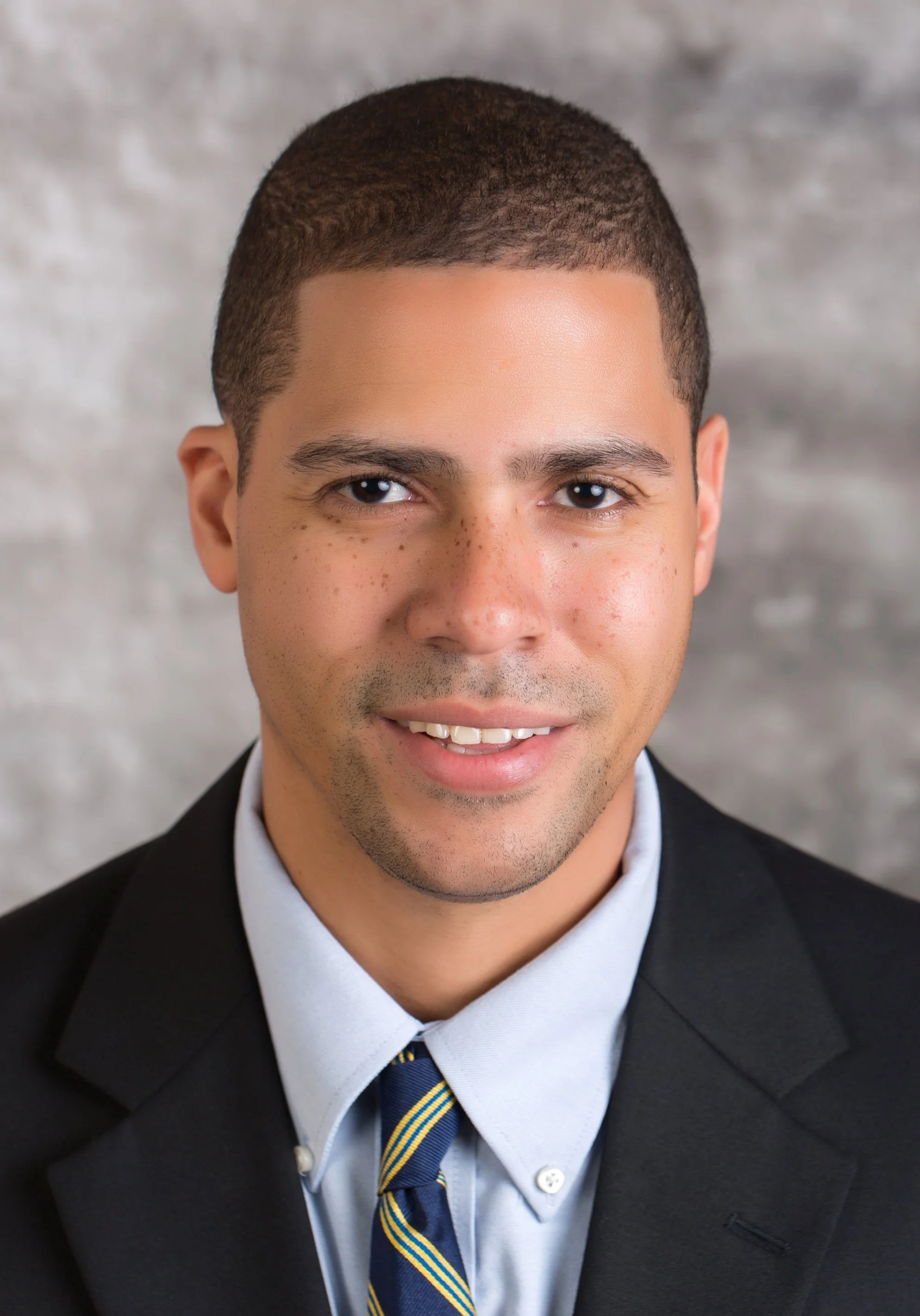Dr. Otis Eliot Pope Jr.
Dr. Otis Eliot Pope Jr. is an American historian and native of Chicago, Illinois. His passion for history began in his adolescence during an educational program at the Chicago Historical Society, today's Chicago History Museum, where he interviewed his grandfather and learned first-hand about African-American Pullman porters in the early 1900s.
Dr. Pope continued his exploration of history at Bowdoin College where he studied American Government and Art History. His undergraduate experience also led him to study Eastern European Politics and German History at the London School of Economics. He later earned his master's in American History from DePaul University where he taught 19th and 20th century American History. He earned his PhD in American History at Loyola University, where he focused on African-American soldiers' experiences during the Korean War.
Dr. Pope has inspired others to love history, both at the high school and college levels. He currently teaches History at Francis Parker School and lives with his wife in Chicago, where he continues to make his way through the culinary scene.
Learn more about Dr. Otis Eliot Pope, Jr.
-
When I was in grammar school, I was invited to take a history class for two hours each week at the Chicago Historical Society, now called the Chicago History Museum. The class left a lasting impression on me. In my spare time before my class started, I would wander the halls and examine the exhibits on display. I also remember participating in a family history project that provided me with a chance to learn more about my family lineage. As a result of my positive experience, I decided to pursue a career as a History Professor.
-
My teaching philosophy is simple – give students the tools to think critically, to be ethical and morally responsible citizens and to help students build arguments with evidence. I treat the subject of history as a conduit to teach important modern competencies like writing, reasoning and technology skills. This makes the information more accessible and, above all, more applicable to real life.
-
I currently teach Themes in World History and Modern World History – International Terrorism. In Themes in World History class students cover a variety of topics, from comparing and contrasting hunter – gather societies to sedentary societies to analyzing the geographic luck of various continents. Students also examine how people are influenced by their environment and geography; look at ways in which religion impacts humans; explore various leadership styles within the context of world history; and, contemplate the role of universal human rights.
Likewise, Modern World History class focuses on the following concepts: terrorist use terrorism to exhaust the will of the imperialist; terrorists use violence to penalize collaborators and compromisers; terrorists use violence to drive people out of the political middle ground and toward the extreme; terrorists use violence to bring publicity to a cause or an idea. These organizing principles from Randall Law’s book entitled Terrorism: A History guide class discussions by providing a theoretical framework for students to refer to as they learn about different types of terrorist groups.Terrorist organizations, including the emergence of White Nationalist Organizations like the Proud Boys, Islamic Fundamentalist groups like Al Qaeda and paramilitary organizations like the Irish Republican Army are analyzed in detail. Through fun and engaging activities such as creating a newscast on violent methodologies used by different terrorist organizations, students develop a multi-faceted understanding of issues pertaining to various terrorist organizations from around the world.
-
I enjoy making history engaging and fun for students. For example, encouraging students to draw parallels between Athens and Sparta to American cities, allows them to appreciate the similarities between ancient civilizations and modern societies. I enjoy helping students make meaningful connections to history. The biggest challenge I face is ensuring that students understand that events, people and places remain pertinent today. Sometimes students discount history because they do not comprehend how and why historical events from the past are worthy of being studied. As a teacher of history, I work hard to help students understand that history is filled with nuggets of knowledge that can be applied to daily life.
